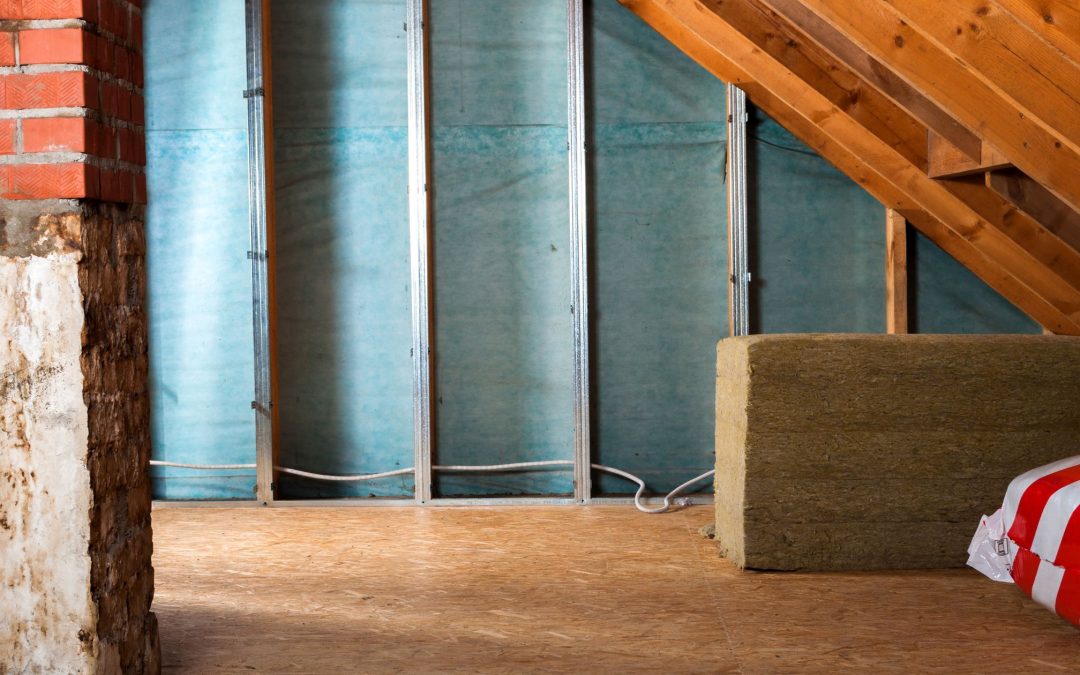It’s no secret that insulation lowers energy bills. The right type and amount of insulation, such as spray foam insulation, can help you save money on your energy bills.
Insulation is measured using R-values, varying depending on the insulation type used. The greater the R-value, the more effective the insulation prevents air leakage and heat loss from your home.
If you want to save money on your energy bills, choosing the right type of insulation is critical. So, how much money does insulation save on utility bills? Let’s get started and find out!
Can Putting Insulation in Your House Save Energy?
Adding insulation to the attic, walls, and floors can significantly reduce utility bills. Insulation helps even out temperature extremes by keeping the heat in during the winter and letting it out during the summer. This reduces the strain on heating and cooling systems.
Homes with enough insulation can save up to 50 percent more energy than those without. Insulation saves energy and helps improve the air quality inside by keeping outside air from getting in. This can help people with allergies or asthma in particular.
How Much Money Will You Save By Insulating Your Attic?
In some cases, attic insulation can save you up to 10% on your energy bill. Proper attic insulation is incredibly effective because it prevents warm or cool air from escaping through the roof or attic floor. This can mean big savings on your heating bill during the winter and help keep your home cooler and lower your air conditioning costs during the summer.
As a bonus, attic insulation reduces noise pollution and makes your home more comfortable. Install spray foam insulation or loose-fill insulation in your attic if you want to save money and make your home more comfortable.
How Can Insulation Affect Your Energy Bill?
Most people have heard of insulation, but few realize how much impact it can have on their energy bills. Insulation is simply a material used to prevent heat transfer and regulate the temperature inside your home regardless of the outside weather. Because you won’t need to use your heater or air conditioner as frequently, this can have a significant impact on your energy bill.
Does Insulation Help with Energy Efficiency?
Yes! Proper insulation is incredibly beneficial to energy efficiency. It prevents heat from escaping through the walls and ceiling, making it easier to maintain a comfortable indoor temperature. Homes with adequate insulation save money on heating and cooling. Furthermore, insulation can help to reduce outside noise, creating a quieter and more peaceful environment inside the home. Insulation boosts energy efficiency and creates a more comfortable living environment.
What Are the Energy Efficiency Benefits of Home Insulation?
Home insulation not only saves money for you and your family, but it also saves energy. Insulation’s energy savings make it a no-brainer for those trying to go green.
Because home insulation prevents energy loss, well-insulated homes are much more energy-efficient than poorly insulated homes. If your house stays warm when you want it to be warm or cool when you want it to be cool, you’ll use your air conditioning or heating much less, which is where the energy savings come in.
R13 vs. R19 Energy Savings
R-value measures thermal resistance; it indicates how well an insulator resists heat flow. The greater the R-value, the greater the insulating power. R13 insulation is made of lower-density fiberglass and is typically used in walls with 24 studs.
R19 insulation is made of higher-density fiberglass insulation and is commonly used in 26-stud walls. Both types of insulation can save a lot of energy, but R19 insulation usually provides more coverage and a higher level of protection. It is often the best choice for homeowners who want to maximize their energy savings.
Your region and climate determine the recommended R-Value for your insulation. Check out Energy Star for your recommended insulation levels.
Which Type of Insulation is Best for Reducing Heating and Cooling Costs?
To choose the best insulation for your home, you must consider the climate you live in and the type of heating and cooling system you have. Homes in cold climates, for example, require more insulation than homes in warm climates. Furthermore, homes with forced-air heating and cooling systems require different insulation than homes with radiant heating and cooling systems.
Some general principles, however, apply to all types of insulation. Reflective insulation, for example, is usually more effective than non-reflective insulation, and loose-fill insulation is usually more effective than batt insulation. Finally, consulting a professional contractor who can assess your specific needs is the best way to choose the right insulation for your home.
Energy Saving Insulation – Final Thoughts
Insulation can save you an average of 11 percent of your home’s total energy costs and 15 percent of your monthly heating and cooling bills. The hundreds of dollars you save on energy each month add up to thousands of dollars per year.
Even better, you’ll be doing good for the environment while increasing the value of your home!
If you need more insulation information, we have some additional resources.
Insulation Experts in Cypress, TX
At our Cypress, TX, insulation company, we offer energy-efficient solutions to home and business owners in the Cypress, TX, area. We help you keep the environment healthy while lowering your heating and cooling bills by installing the best insulations by the most skilled team members. Call us today to learn more about our insulation products and services or to discuss how we can assist you.
Contact us today to learn more about how insulation can help you live healthier while saving you money.

Recent Comments